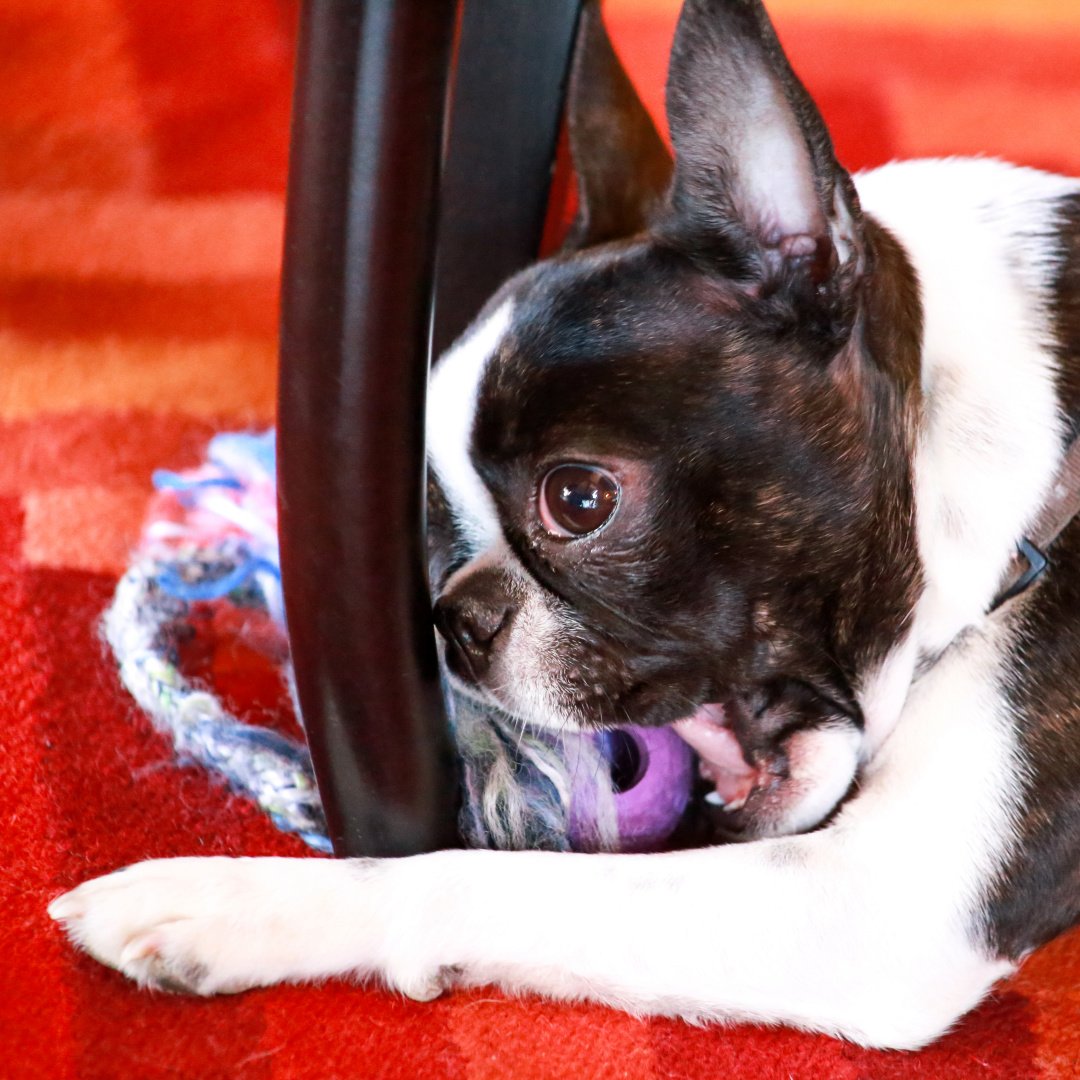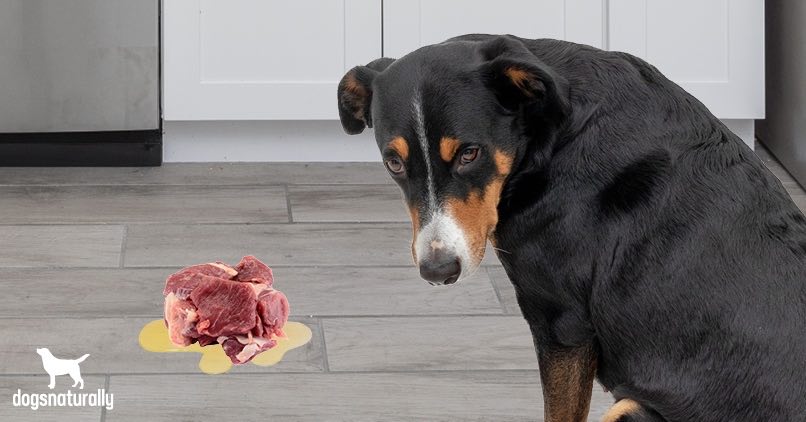Boston terriers are adorable little dogs with big personalities. But what happens when your furry friend starts throwing up after every meal? It can be both alarming and puzzling. So, let’s dig into the question of “why does my Boston terrier throw up after eating?”
First things first, it’s essential to understand that occasional vomiting in dogs is not uncommon. However, if it becomes a regular occurrence after eating, it may indicate an underlying issue. One possible reason could be that your Boston terrier is eating too quickly, causing them to regurgitate their food shortly after. Another possibility is that they may be experiencing a sensitive stomach or a food allergy.
But don’t worry, we’re here to help you figure it out! In this article, we’ll explore the potential causes of your Boston terrier’s vomiting after meals, including dietary factors, medical conditions, and other triggers you may need to watch out for. So, sit back, grab a treat for your four-legged friend, and let’s unravel the mystery behind their upset tummy!

Why Does My Boston Terrier Throw Up After Eating?
It can be alarming and frustrating when your beloved Boston Terrier throws up after eating. While occasional vomiting can happen to any dog, frequent or persistent vomiting should be taken seriously and may require veterinary attention. In this article, we will explore some of the common reasons why Boston Terriers may throw up after eating and provide helpful tips on how to address and prevent this issue. So, if you’ve ever wondered why your Boston Terrier is experiencing this, keep reading to find out more!
Factors That Contribute to Vomiting in Boston Terriers
As a responsible pet owner, it’s important to understand the possible factors that can contribute to your Boston Terrier’s vomiting after meals. Here are three common reasons:
Allergies and Food Sensitivities
Food allergies and sensitivities are not uncommon in dogs, including Boston Terriers. Certain ingredients in their food, such as grains, poultry, or beef, can trigger an allergic reaction or sensitivity, leading to vomiting. If you suspect food allergies, try switching to a hypoallergenic or limited ingredient diet recommended by your veterinarian. This can help determine which ingredients your Boston Terrier may be sensitive to and alleviate the vomiting episodes.
Additionally, Boston Terriers may also have allergies to environmental factors like pollen or dust, which can manifest as gastrointestinal issues. If you suspect environmental allergies, consult your veterinarian for appropriate treatment options.
Eating Too Quickly
Boston Terriers are known for their voracious appetites and tendency to gobble down their meals in record time. However, eating too quickly can lead to regurgitation or vomiting. When dogs eat at a rapid pace, they swallow air along with their food, which can cause indigestion and stomach discomfort. To prevent this, consider using slow-feed bowls or puzzle feeders that slow down your Boston Terrier’s eating speed and promote better digestion.
It’s also important to ensure that your Boston Terrier is in a calm environment while eating. Stress or anxiety can contribute to faster eating, so create a peaceful eating area for your pup to help prevent vomiting.
Gastrointestinal Issues
Boston Terriers are prone to certain gastrointestinal issues, such as gastroenteritis or gastric reflux. Gastroenteritis is an inflammation of the digestive tract, often caused by dietary indiscretion or bacterial infections. This condition can lead to vomiting, diarrhea, and overall gastrointestinal distress. Gastric reflux, on the other hand, occurs when stomach acid flows back into the esophagus, causing irritation and vomiting.
If your Boston Terrier is experiencing frequent vomiting accompanied by other symptoms like diarrhea, loss of appetite, or lethargy, it’s crucial to consult with your veterinarian. They can perform diagnostic tests to determine the underlying cause and provide appropriate treatment to alleviate your dog’s symptoms.
Preventing Vomiting in Boston Terriers
While addressing the underlying causes of your Boston Terrier’s vomiting is essential, there are also preventive measures you can take to minimize the occurrence of this issue. Here are a few tips:
Choose the Right Food
Selecting a high-quality dog food that suits your Boston Terrier’s nutritional needs and is free of potential allergens can significantly reduce the chances of vomiting episodes. Consult with your veterinarian to identify the best dietary options for your dog, considering their age, size, and any specific health concerns.
Feed Smaller, More Frequent Meals
Instead of feeding one large meal, consider dividing your Boston Terrier’s daily food intake into smaller, more frequent meals. This can help prevent overeating and reduce the likelihood of vomiting.
Monitor Eating Behavior
Observe your Boston Terrier’s eating behavior and ensure they are not eating too quickly. If necessary, use interactive feeding toys or slow-feed bowls to slow down their eating pace. Creating a calm and stress-free feeding environment can also contribute to better digestion.
Avoid Table Scraps and Unhealthy Treats
While it can be tempting to share human food with your Boston Terrier, it’s important to avoid giving them table scraps or unhealthy treats. Certain human foods, like chocolate or onions, can be toxic to dogs and lead to vomiting. Stick to dog-friendly treats and consult with your vet for safe snack options.
Conclusion
Vomiting after eating can be a symptom of various underlying issues in Boston Terriers, including food allergies, eating too quickly, and gastrointestinal problems. By understanding these potential causes and implementing preventive measures, such as choosing the right food, monitoring eating behavior, and avoiding harmful treats, you can help minimize the occurrence of vomiting episodes. However, if your Boston Terrier continues to vomit or experiences other concerning symptoms, it’s crucial to seek veterinary attention for a proper diagnosis and appropriate treatment.
Key Takeaways: Why Does My Boston Terrier Throw Up After Eating?
- 1. Sensitive Stomach: Boston terriers can have sensitive stomachs, leading to vomiting after eating.
- 2. Food Allergies: Your Boston terrier may be allergic to certain ingredients in their food, causing them to vomit.
- 3. Eating Too Quickly: Eating too fast can cause a Boston terrier to vomit as their digestive system gets overwhelmed.
- 4. Gastrointestinal Issues: If your Boston terrier is experiencing gastrointestinal issues, it can result in vomiting after eating.
- 5. Overeating: Feeding your Boston terrier large portions or giving them access to too much food can lead to vomiting.
Frequently Asked Questions
Are you wondering why your Boston Terrier throws up after eating? We have answers to your questions below.
Why does my Boston Terrier vomit after eating?
There could be several reasons why your Boston Terrier vomits after meals. One common cause is the speed at which they eat. If your dog gobbles down their food too quickly, they may swallow air, which can lead to vomiting. Another possible reason is overeating. If your Boston Terrier consumes too much food in one sitting, their stomach may become overloaded and result in vomiting. Food allergies or sensitivities can also cause your dog to vomit after eating specific ingredients. It’s important to consult with your veterinarian to identify the cause.
A sudden change in diet can also trigger vomiting in your Boston Terrier. Introducing new food or switching brands abruptly can upset their stomach and lead to vomiting. Additionally, certain medical conditions like gastroenteritis, pancreatitis, or gastrointestinal blockages can cause vomiting. Consult your veterinarian if the vomiting persists or if you notice any other concerning symptoms.
How can I prevent my Boston Terrier from throwing up after eating?
To prevent your Boston Terrier from vomiting after meals, there are a few steps you can take. First, try slowing down their eating pace. Use puzzle feeders or divide their meals into smaller portions to encourage slower eating. This can help prevent swallowing excess air and reduce the chances of vomiting. If your dog tends to overeat, consider feeding them smaller meals throughout the day instead of one large portion.
If you suspect food allergies or sensitivities, you may need to switch to a different diet. Consult with your veterinarian to determine the best approach and find suitable, hypoallergenic dog food options. Gradually transitioning to a new food can also help prevent stomach upset. Remember to always provide fresh water for your Boston Terrier, as dehydration can contribute to vomiting episodes. If the issue persists, consult your veterinarian for further guidance.
When should I be concerned about my Boston Terrier vomiting after eating?
Vomiting occasionally after eating is usually not a cause for immediate alarm. However, if the vomiting becomes frequent or is accompanied by other concerning symptoms, it’s best to consult your veterinarian. Keep an eye out for signs like diarrhea, loss of appetite, lethargy, or blood in the vomit. These could indicate underlying health issues that require professional attention. Furthermore, if your Boston Terrier is unable to keep any food or water down, it’s essential to seek veterinary care promptly to prevent dehydration.
Additionally, if your dog’s vomiting persists for more than 24 hours or is severe in nature, it’s crucial to contact your veterinarian. They will be able to assess your Boston Terrier’s overall health, perform necessary tests, and provide appropriate treatment options. Remember, it’s always better to be cautious when it comes to your pet’s well-being.
Can stress or anxiety cause my Boston Terrier to vomit after eating?
Yes, stress or anxiety can contribute to vomiting in dogs, including Boston Terriers. Just like humans, dogs can experience emotional distress that manifests physically. If your Boston Terrier experiences stress or anxiety before or during mealtime, it may trigger vomiting. Common stressors can include changes in their environment, loud noises, separation anxiety, or even excitement. It’s important to create a calm and peaceful eating environment for your dog to help alleviate stress-related vomiting.
If you suspect stress or anxiety is the cause, try implementing a regular feeding routine and provide a quiet, comfortable space for meals. Engaging your Boston Terrier in relaxing activities before mealtime, such as a short walk or gentle play, can also help reduce stress levels. If the vomiting persists despite your efforts to minimize stress, consider consulting with a professional dog trainer or animal behaviorist for additional guidance.
Are there any home remedies I can try to prevent my Boston Terrier from vomiting after eating?
While it’s essential to consult your veterinarian for an accurate diagnosis and treatment plan, there are a few home remedies you can try to help reduce the chances of your Boston Terrier vomiting after eating. First, as mentioned earlier, you can slow down their eating pace by using puzzle feeders or dividing their meals into smaller portions. This helps prevent overeating and swallowing excess air.
Another home remedy is to raise your dog’s food dish to a height that promotes proper digestion. Elevating the food bowl can reduce the chances of regurgitation and vomiting. Additionally, providing a calm and stress-free eating environment can make a difference. Minimize loud noises, distractions, and ensure your dog feels safe and comfortable during meals. However, always remember to consult your veterinarian for professional advice tailored to your Boston Terrier’s specific needs.

Summary
Here’s a quick summary of why your Boston Terrier might be throwing up after eating.
Sometimes, dogs with sensitive stomachs can throw up if they eat too quickly or if their food doesn’t agree with them. It’s important to feed them small, frequent meals to prevent this. However, if the vomiting persists or is accompanied by other symptoms like diarrhea or lethargy, it could be a sign of a more serious health issue. In these cases, it’s best to consult with a veterinarian to determine the underlying cause and get appropriate treatment.
